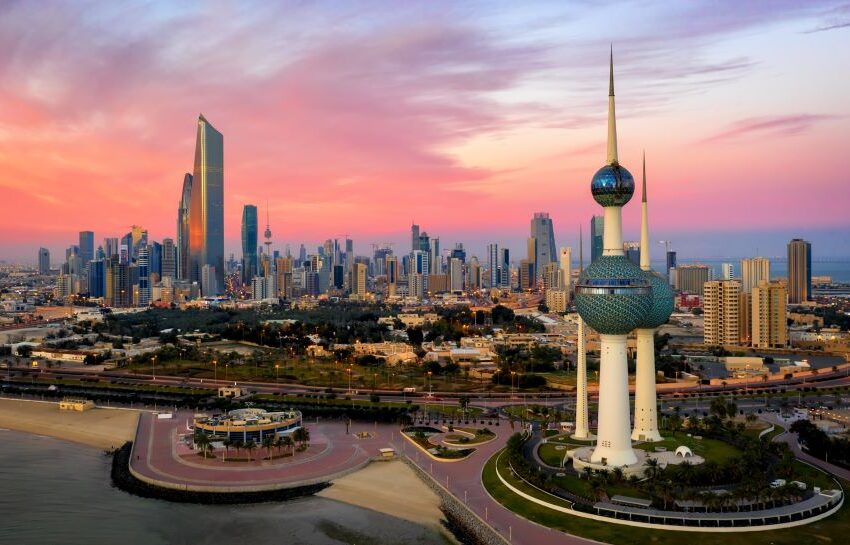
Kuwait’s Real GDP to Contract 3.2% in 2024
The real GDP of Kuwait, one of the major oil exporters in the GCC region, will contract by a further 3.2% in 2024 due to an additional OPEC+ oil production cut, then will expand by 2.8% in 2025 as the cuts get unwound, and will grow broadly in line with potential thereafter.
The incipient recovery of the non-oil sector will continue in 2024, with non-oil GDP expanding by 1.3% despite fiscal consolidation, after which it will gradually converge to its potential of 2.5%, the International Monetary Fund (IMF) said after its concluded talks with Kuwaiti officials.
“Kuwait has a window of opportunity to implement needed fiscal and structural reforms to boost private sector-led inclusive growth and diversify its economy away from oil. The economic recovery was disrupted in 2023, and inflation is moderating. Real GDP contracted by 3.6% in 2023,” the IMF said in a statement.
This economic downturn was concentrated in the oil sector, which contracted by 4.3% in 2023 due to an OPEC+ oil production cut. In addition, the non-oil sector is estimated to have contracted by 1% in 2023, primarily reflecting lower manufacturing activity in oil refining.
The external position remained strong in 2023 and the current account surplus moderated to 31.4% of GDP in 2023, with a 10.3% of GDP reduction in the trade surplus from lower oil prices and production largely offset by a 7.4% of GDP increase in the income surplus.
Official reserve assets amounted to a comfortable nine months of projected imports at end-2023. However, the external position was substantially weaker than the level implied by fundamentals and desirable policies in 2023, partly reflecting inadequate public saving of oil revenue.
Fiscal Balance
The fiscal balance of the budgetary central government swung from a surplus of 11.7% of GDP in FY2022-23 to a deficit of 3.1% of GDP in FY2023-24. This mainly reflected a 5.8% of GDP reduction in oil revenue given lower oil prices and production, and a 9.7% of GDP increase in current spending, of which 5.7% of GDP went to the public sector wage bill while 3.4% of GDP went to subsidies. Nonetheless, the fiscal balance of the general government (which includes the income from SWF investments) was an estimated 26% of GDP in FY2023-24.
The current account surplus will moderate further to 28.4% of GDP in 2024 as lower oil prices and production reduce the trade surplus, then will gradually decline over the medium term alongside oil prices.
“The fiscal deficit will increase to 5.1% of GDP in FY2024-25 as lower oil revenue more than offsets expenditure rationalisation, then will steadily rise by about 1% of GDP per year over the medium term under current policies,” the IMF said.
Subsidies Should End
Hydrocarbon consumption subsidies are the highest in the GCC and they should be phased out by gradually raising retail fuel and electricity prices to their cost-recovery levels while providing targeted transfers to vulnerable groups.
On-budget public investment plummeted over the past decade, to near the bottom of the GCC. It should be raised to build up the quantity and quality of infrastructure towards high-income country levels.
The hydrocarbon share of government revenue remains the highest in the GCC. In the context of the global minimum corporate income tax (CIT) agreement, the government’s plan to extend it to all large domestic companies is welcome. To boost non-oil revenue mobilisation, Kuwait should introduce the GCC-wide VAT and excise tax.
Private Sector-Led Inclusive Growth
The IMF felt that a comprehensive and well-sequenced structural reform package was needed to increase non-oil potential growth. The initial priorities are to improve the business environment by enhancing transparency, raising efficiency, and further opening up the economy. Meanwhile, labour market reforms should be gradually phased in to incentivise private sector-led inclusive growth.
To raise efficiency, the government should improve public infrastructure, conduct regulatory impact assessments with public consultations, integrate digital public service delivery across ministries, and further streamline business establishment processes.
To incentivise Kuwaitis to seek employment in the private sector, compensation and working conditions should be better harmonized across the public and private sectors. Enhancing the quality of education and aligning it with private sector needs would raise productivity and support economic diversification.
Employment of highly-skilled expatriate workers should be supported by introducing targeted visa programs and reforming job sponsorship frameworks, promoting knowledge transfer.















